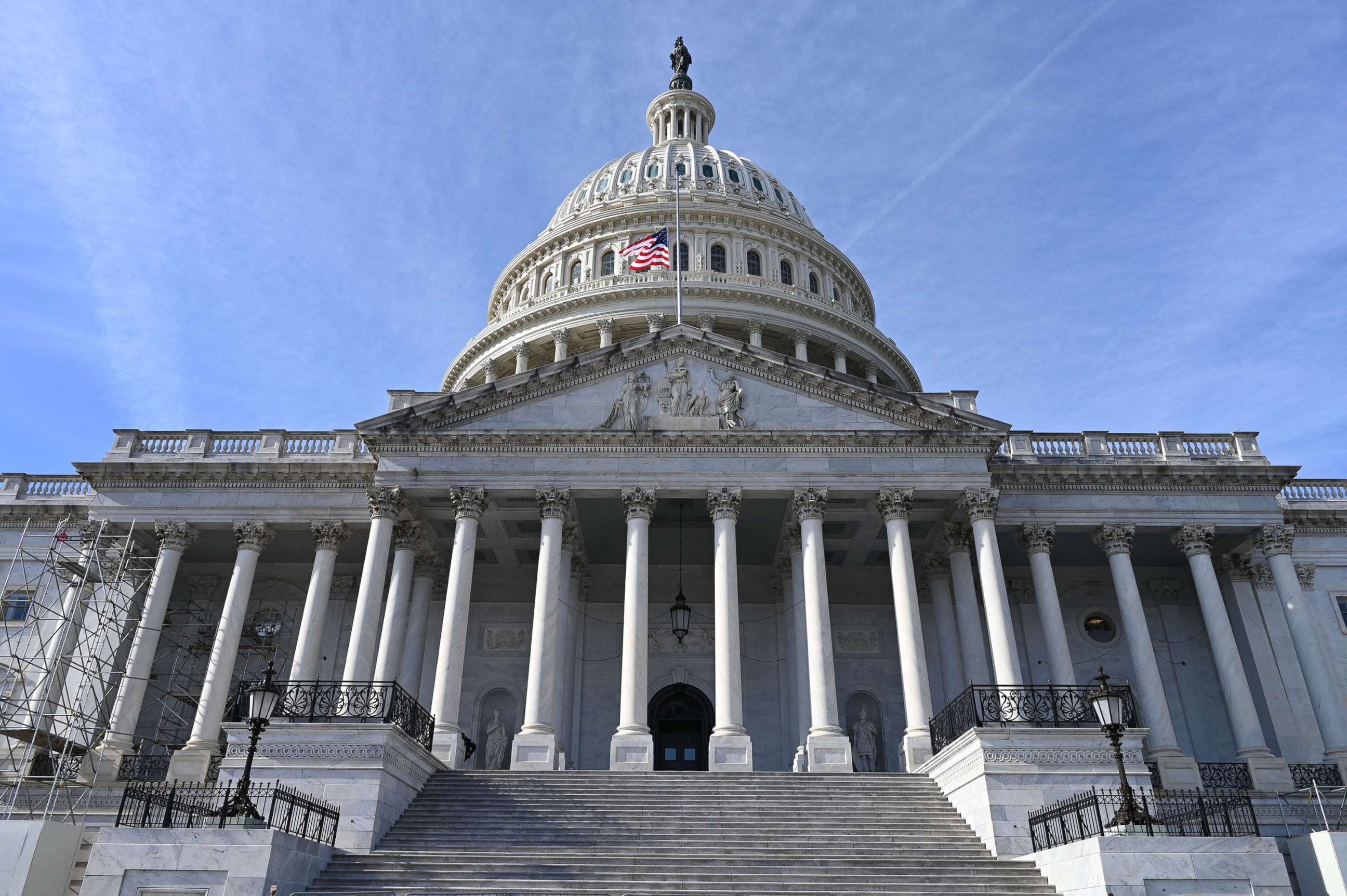$45 billion in Ukraine aid included in must-pass $1.7 trillion government funding bill
Lawmakers have until midnight Friday to pass the bill and avoid a shutdown.
Senate leaders on Tuesday scrambled to beat a midnight Friday deadline to avoid a government shutdown after negotiators early Tuesday unveiled the text of a massive, $1.7 trillion spending bill to keep funding going through fiscal year 2023.
"The choice is clear. We can either do our jobs and fund the government, or we can abandon our responsibilities without a real path forward," Senate Appropriations Chairman Patrick Leahy, D-Vt., said in a statement.
If it passes procedural and political hurdles in the Senate, House lawmakers must still approve the measure as well.
Members on both sides of the aisle are claiming victories on the bill. Republicans are celebrating a boost in defense spending, while Democrats tout the inclusion of Ukraine aid and reforms to the Electoral Count Act to avoid a repeat of Jan. 6 and attempts to overturn the 2020 election.
The bill also has a stamp of approval from the administration, despite not including everything President Joe Biden and officials wanted.
"As with any compromise, neither side got everything it wanted, but this legislation is good for our economy, our competitiveness, and our country, and I urge Congress to send it to the President's desk without delay," Shalanda Young, the director of the Office of Management and Budget, said in a statement after the bill's text was released.
While Senate Majority Leader Chuck Schumer, D-N.Y., said he wants the bill to be passed as soon as possible given the approaching winter storm, a handful of Republicans could delay the process.
Several GOP Senators including Rick Scott, Mike Braun, Ron Jonson ad Rand Paul wheeled a physical copy of the massive omnibus bill on a cart adorned with signs that read, "Danger 1.7 trillion of hazardous Debt," and "Omnibus Beware debt hazard of 1.7 trillion added to the National Dept."

The senators then each took the stand to air their grievances with the bill which they believe to be catastrophic for the American people citing inflation and national deficit concerns as well as insufficient time to properly vet the bill before a vote. Paul promised to bring several amendments to the floor for a vote.
"The American people don't want this. They're sick and tired of it," Paul said, adding, "It's a terrible system. Someone needs to stand up. We're standing up and we're saying no."
There's also a handful of House Republicans calling for the caucus to punt the issue into the new Congress, when they take over the chamber. House Minority Leader Kevin McCarthy went so far as to threaten any future bill from Senate Republicans to be "dead on arrival in the House if this nearly $2T monstrosity is allowed to move forward."
Here's a look at some of the measures in the bill and what didn't make it into the text.
What's included: TikTok ban, Ukraine aid and more
Overall, the omnibus bill would allocate $858 billion in defense-related spending -- a $76 billion increase from fiscal year 2022.
It also allocates $772.5 billion for non-defense discretionary programs, which is a $68 billion increase from last year.
Appropriators set aside $45 billion in aid for Ukraine and NATO allies amid Russia's ongoing invasion, which is $7 billion more than what the Biden administration had requested. The bill also includes a pay raise for American troops and civilian federal employees.

The bill also includes $118 billion for medical services for veterans, which includes funding for recently passed legislation that aids veterans suffering from exposure to burn pits and other toxic substances.
The bill provides $40 billion to assist communities impacted by wildfires, hurricanes, flooding and other natural disasters. It includes $1 billion for Puerto Rico's electrical grid, which has been beaten down by hurricanes and other storms, and $600 million to address the water crisis in Jackson, Mississippi.
Among the measures unrelated to spending in the omnibus bill is reform to the Electoral Count Act, the centuries-old law former President Donald Trump and his allies tried to exploit in the failed effort to overturn the 2020 election. The changes to the law were made in response to the Jan. 6 attack.
Also included is a measure to ban the use of the social media app TikTok on government-issued devices. The measure mirrors state-level bans on the app passed in recent weeks in Texas, Georgia and other areas.
What's been left out: COVID funding, expanded Child Tax Credit
What the $1.7 trillion spending bill doesn't include is the COVID-19 funding that the White House requested to help boost vaccine and treatment supplies and fund next-generation research.
Cannabis banking legislation was also left on the cutting room floor. The SAFE Banking Act, which passed with bipartisan support in the House last year, would allow banks to provide services to cannabis companies in states where it is legal.
The expanded Child Tax Credit was left out of the bill despite Democrats' push to renew the benefit that was credited with a decline in child poverty. Legislation legislation to narrow the sentencing disparities between crack and powder cocaine offenses, a priority for criminal justice advocates, was also not included in the spending package.

Also on the chopping block was a measure that would have provided a citizenship path to "Dreamer" immigrants, those who came to the U.S. illegally as children, and the Afghan Adjustment Act, which would allow refugees who were resettled when U.S. troops pulled out of Afghanistan to be on a path to permanent residency.
Both Schumer and McConnell noted there were things not included that they would have liked to see included in the bill that were omitted.
"There were many things, one could argue, that were important that didn't make it into bill," McConnell said Tuesday.
-ABC News' Noah Minnie contributed to this report.




